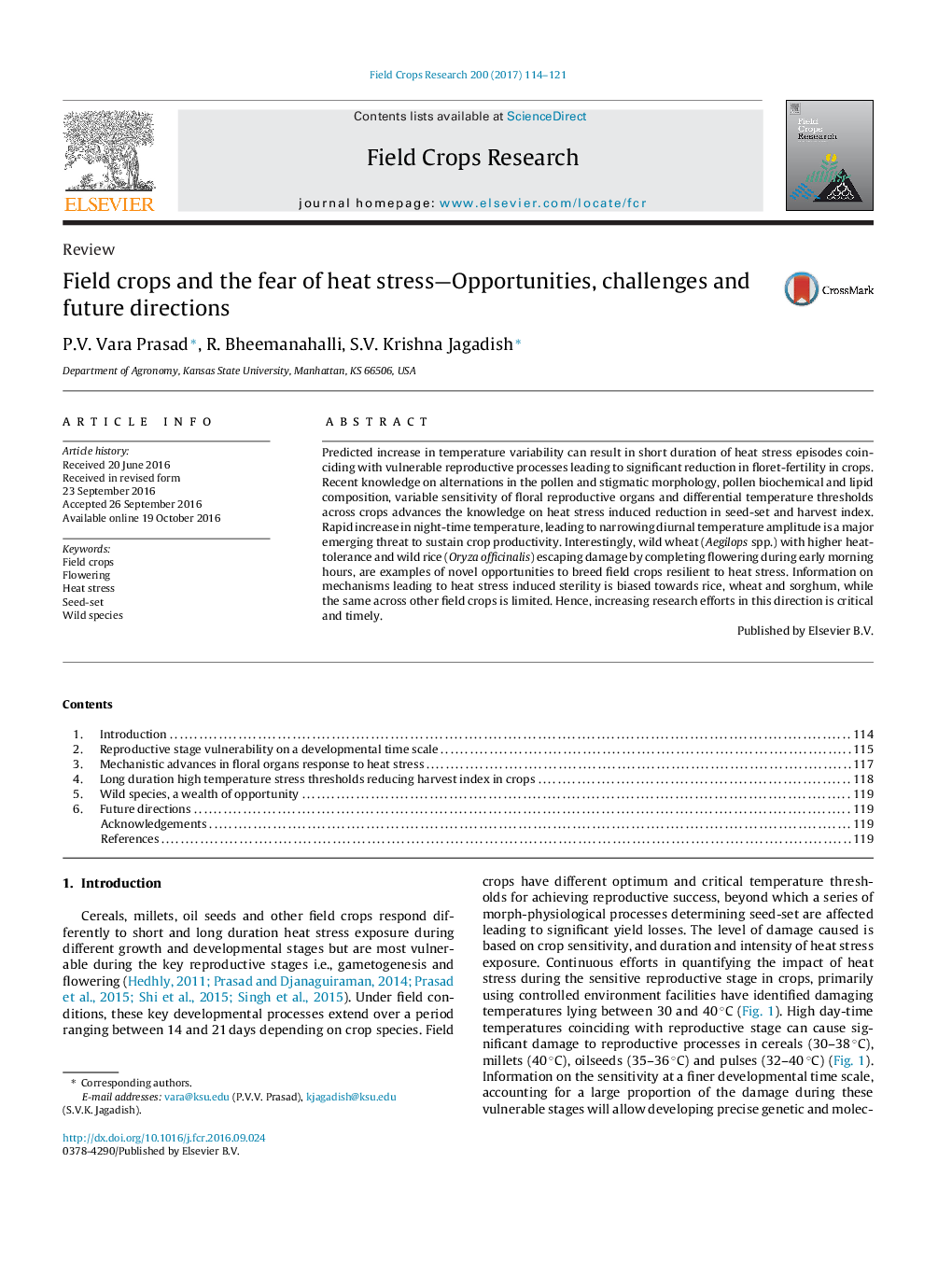| Article ID | Journal | Published Year | Pages | File Type |
|---|---|---|---|---|
| 4509799 | Field Crops Research | 2017 | 8 Pages |
•Physiological responses to heat stress coinciding with flowering in pulses and oilseeds is limited.•Categorizing responses into tolerance, escape or avoidance category is essential to enhance resilience to heat stress.•Wild accessions – a store house of opportunities for increasing heat stress resilience in cereals.
Predicted increase in temperature variability can result in short duration of heat stress episodes coinciding with vulnerable reproductive processes leading to significant reduction in floret-fertility in crops. Recent knowledge on alternations in the pollen and stigmatic morphology, pollen biochemical and lipid composition, variable sensitivity of floral reproductive organs and differential temperature thresholds across crops advances the knowledge on heat stress induced reduction in seed-set and harvest index. Rapid increase in night-time temperature, leading to narrowing diurnal temperature amplitude is a major emerging threat to sustain crop productivity. Interestingly, wild wheat (Aegilops spp.) with higher heat-tolerance and wild rice (Oryza officinalis) escaping damage by completing flowering during early morning hours, are examples of novel opportunities to breed field crops resilient to heat stress. Information on mechanisms leading to heat stress induced sterility is biased towards rice, wheat and sorghum, while the same across other field crops is limited. Hence, increasing research efforts in this direction is critical and timely.
